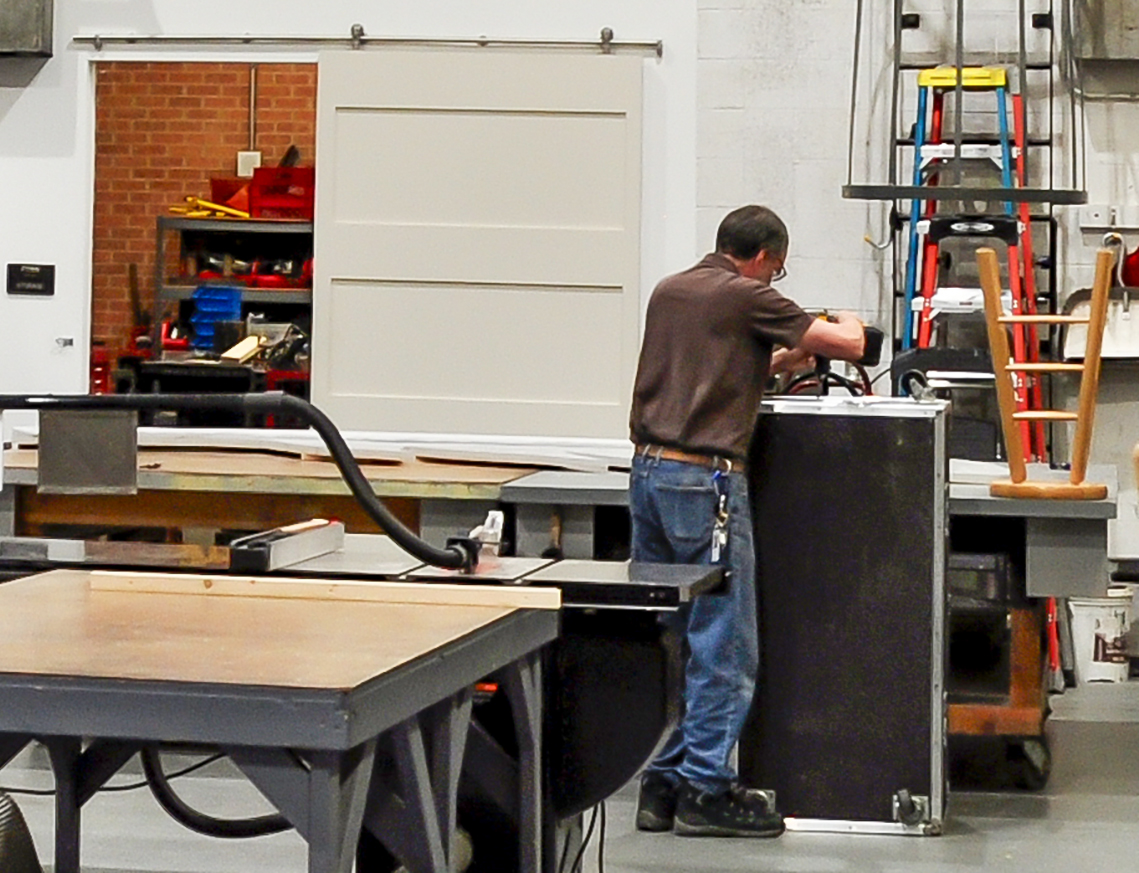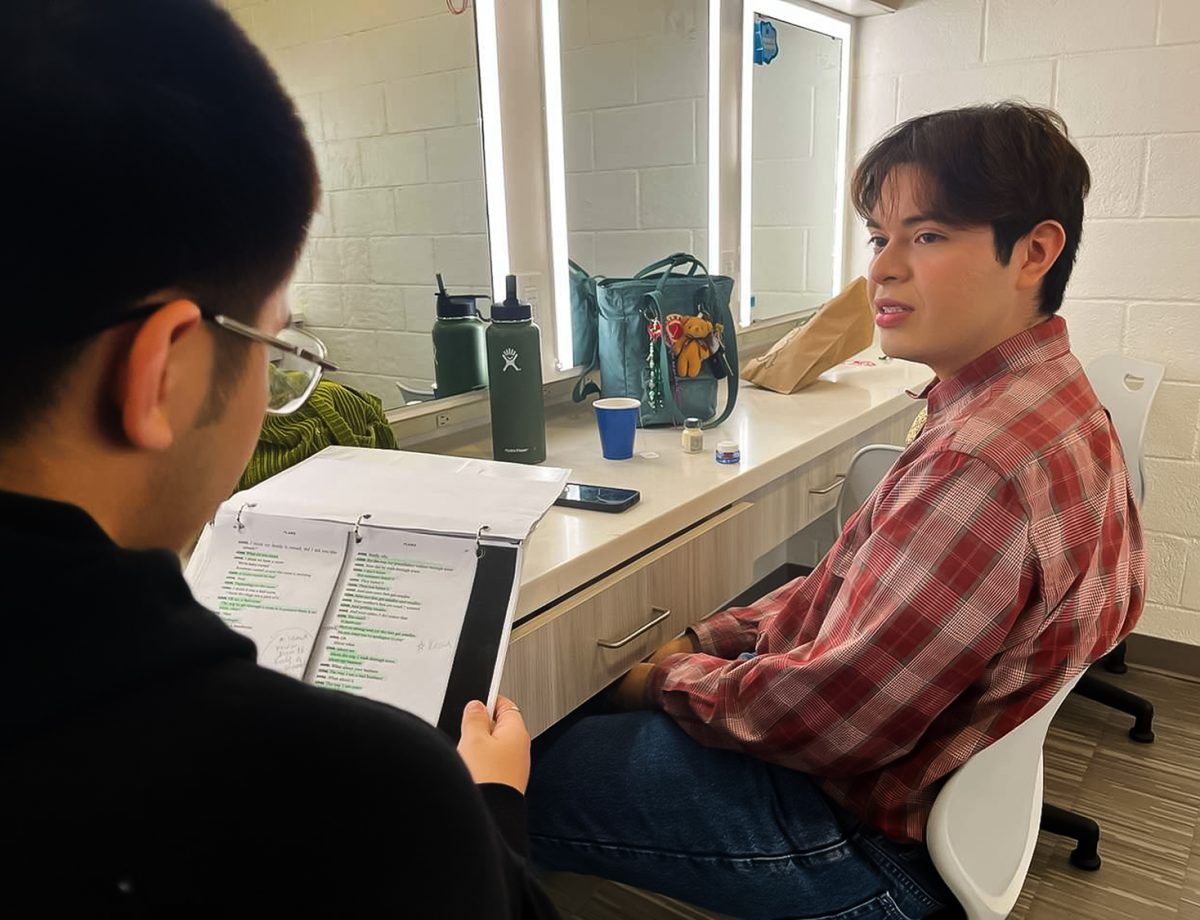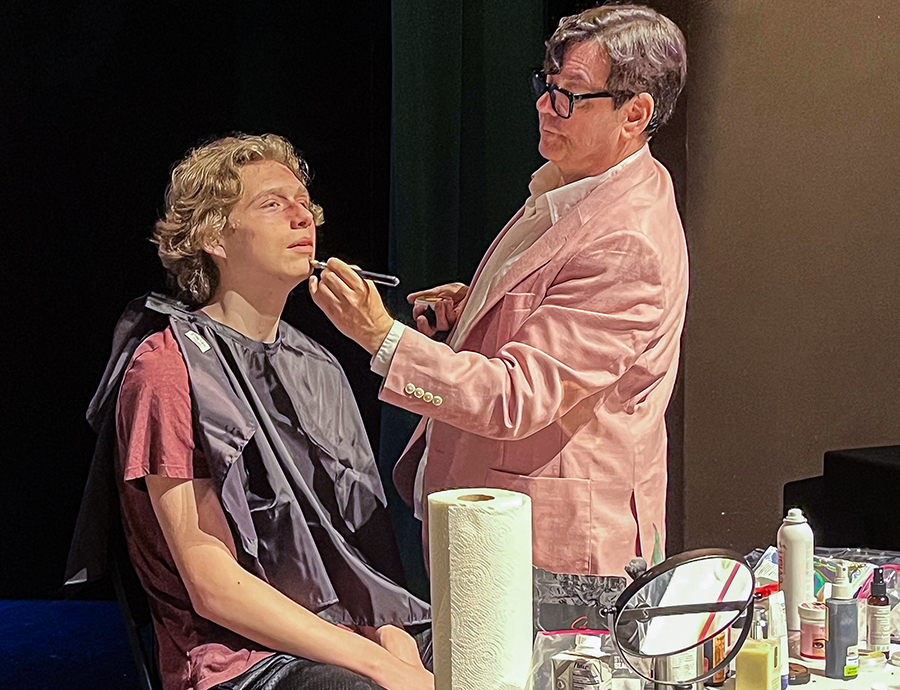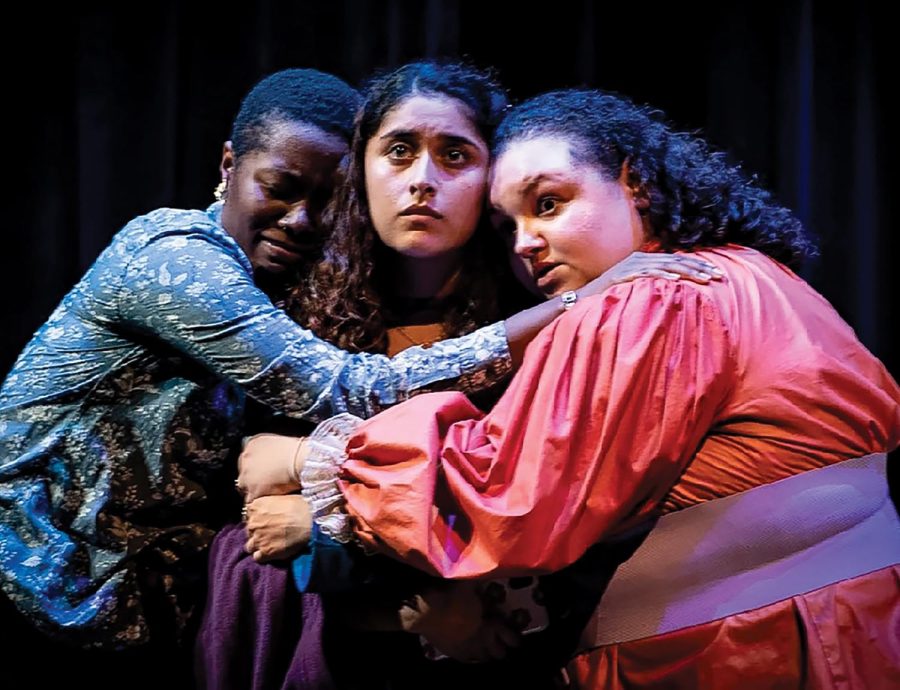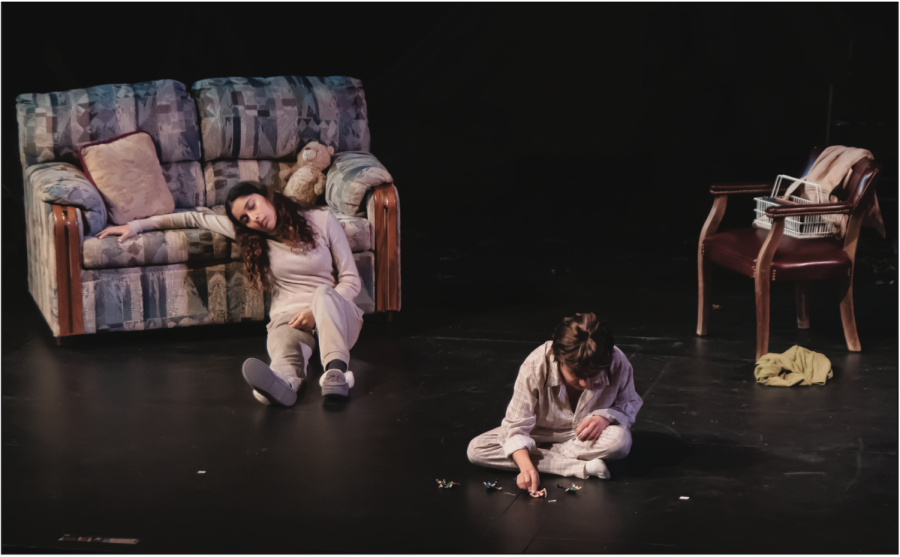The Richland Campus Theater Department has been well-known in the theater community for some time, their quality performances in competitions and entertainment venues winning them awards and recognition locally and nationally. Most recently the theater department competed at the Kennedy Center in Washington, D.C. in the American College Theater Festival, and after some deliberation on the Select Committee’s part, the Richland Campus’s production of “Self-Injurious Behavior” was selected as a finalist.
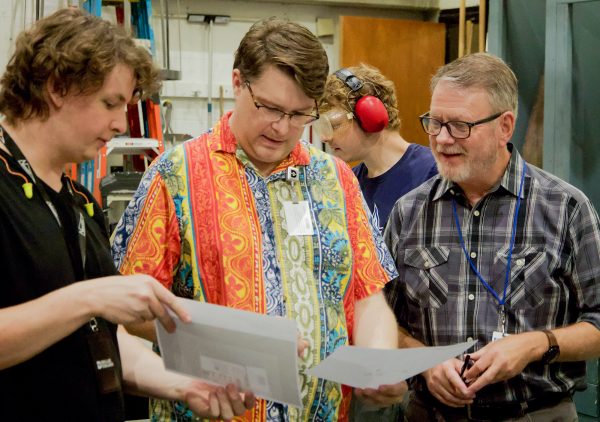
But what did the director and producers of this play do differently to draw the attention of so many who could relate to the messages and themes of “Self-injurious Behavior”? How did they manage to capture and reproduce the difficult emotions that so many had failed to replicate before? Are they planning to do it again?
When considering the play that he wanted to direct, Andy Long remembered the production of “Self-Injurious Behavior” when it was performed at Theater Three here in Dallas in 2018. Long contacted playwright Jessica Cavanagh, who worked with him to prepare the play for the Richland Theater Department. They diversified the cast and opened roles to include as many actors as possible. From there, the challenge became practice and research of their roles. They didn’t just practice here at Richland, however.
“I’ve always felt that if you’re going to grow as a human being, it’s by testing yourself, and one of the best ways I think to test ourselves is by literally going up against university productions,” Long said.
They competed seven times, four of which, the Richland theater team was held for consideration for finalists. However, it wasn’t until recently that they finally advanced. Competing against over 200-plus other colleges, “Self-Injurious Behavior” walked away with multiple national awards.
“Through growing our program here, through careful recruitment and building a reputation of excellence in theater, I think we have reached a skill level that many people see our productions and don’t view them as community college productions, but as something equal to productions they have seen from a large university,” he said.
Long attributes the success of “Self-Injurious Behavior” to multiple factors, some of which include the diversity of the cast, some of the executive choices to change parts of the script, the skill and effort of the cast and crew and some of the raw emotions that came out of this piece. He also agreed that COVID may have influenced the success of “Self-Injurious Behavior” as it dealt with many themes of isolation, self-harm, reaching out for help and finding connection after a loss.
“We had audience members come out crying after the show and audience members coming up and telling me ‘I identified so well with this’ and ‘What I saw on stage felt like my story’” he said. Most left the show changed in one way or another, as some found a connection through the play and others gained insight into how this play could be true for their own friends and family. In an interview done by Evangeline Scott on StateraArts’s webpage, Cavanagh said, “The most common question I get when I tell people about my play is, ‘Is this real?’”
“Folks who had known me for a decade always asked me if this was really true — if what I was writing had really been our lives. I think they were mortified and maybe even hurt to know that their friend had been struggling … I rarely shared the depths of what we were dealing with at home.”
In terms of these big emotions that were portrayed in “Self-Injurious Behavior,” Long has some big plans in mind for the upcoming productions. Some will feature student-written and student-acted short films. The short films were originally a solution for the theater department during COVID, a way to continue acting and production despite having no in-person audiences. The short film was enough of a success that another one will be in production this upcoming spring semester, in a class that takes place during the first eight weeks. The second half of the spring semester will be dedicated to an upcoming play that Long is planning to direct.
He hopes to continue to have the same level of quality and connection with these upcoming pieces and to match if not improve on the level of emotion with these projects. And who knows? There may be more Kennedy Center awards in Richland Theater’s future.

